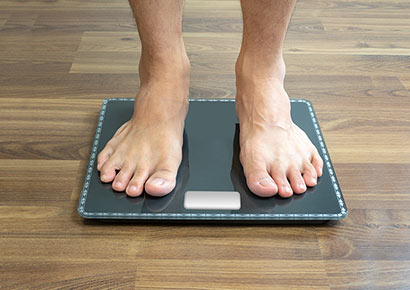Sickened by stigma: Queer link to weight
 Women who are attracted to women are more at risk of obesity while gay men tend to be underweight, according to breaking research from the United Kingdom (UK) suggesting experiencing stigma is to blame.
Women who are attracted to women are more at risk of obesity while gay men tend to be underweight, according to breaking research from the United Kingdom (UK) suggesting experiencing stigma is to blame.
The research, published in the Journal of Public Health on 21 February, suggests that sexual identity – and the impact of stigma – should be considered as a social determinant of health in the fight to end the global obesity epidemic.
The research looked at data from almost 100 000 individuals.
The “negative experiences” of the queer community, including discrimination and violence, are known to affect health and could explain these findings, according to lead researcher Dr Joanna Semlyen.
“We know that sexual minority groups are more likely to be exposed to psychosocial stressors, which impacts their mental health and their health behaviours such as smoking and alcohol use and which may influence their health behaviours such as diet and physical activity,” she said.
LGBT stigma
Stigma and violence towards lesbian, gay, bisexual and transgender (LGBT) people is high in South Africa and media reports of attacks on LGBT people are disturbingly frequent.
A 2016 survey of over 2000 LGBT-identifying South Africans revealed that almost half experienced “discrimination in their everyday life” in the previous two years, related to their gender identity or sexual orientation. The research found that this had a dramatic impact on health, but particularly mental health.
“Of those who have experienced discrimination in the past two years, around a third agreed that their self-esteem had deteriorated as a result,” noted the report, published by the LGBT organisation OUT.
But unhealthy weight tends to affect different genders differently.
Opposite risk for men
The UK study found that, compared to men who identify as heterosexual, men who have sex with men are more likely to be underweight, which – like obesity – negatively affects health.
“Evidence is available that suggests sexual minority male youth are not only more likely to engage in risky weight control behaviours than heterosexual peers and are more influenced by advertising focusing on physical appearance, but also self-perceive as overweight despite being healthy or even underweight,” noted the researchers.
Said Semlyen: “We hope that policy makers and clinicians will be able to use this fresh evidence to provide better healthcare and tailored advice and interventions for lesbian, gay and bisexual people.”
Article courtesy of Health-e News.
Leave a Reply